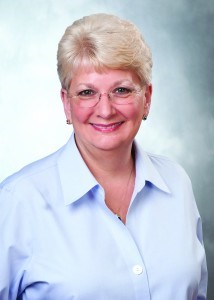 After years of abuse and abandonment, through necessity and hard work, Gay found her purpose in life: She founded Café Feminino Foundation to help raise women in coffee communities out of poverty and despair.
After years of abuse and abandonment, through necessity and hard work, Gay found her purpose in life: She founded Café Feminino Foundation to help raise women in coffee communities out of poverty and despair.
Tell us about you and your life…
I am 68 years old, live in Vancouver, WA, and am the mother of two and grandmother of three. Just three months ago, I lost my husband of 25 years. We had just completed construction on our retirement home in Vancouver, where I still live. We had also bought a house in Las Vegas to get away from our wet northwest winters and enjoy some sun, as well as occasional visits from family and friends. That warm Nevada sunshine is now helping me heal from a difficult year.
I went to college to be a teacher—my father and brother were both teachers. When it came time to begin my student teaching, however, I realized I did not want to be a teacher, so I went to work for the local bank. I loved it, and acquired many skills in accounting, financial reporting, human resources, and more. Still, after 7 years, I chose to leave; in those days, women in banking were paid poorly and there were few opportunities for advancement.
From there, I started working in construction, a male-dominated industry at the time, where I gained valuable skills in job costing, estimating, sales, purchasing, sales, management, etc. In the meantime, I also married a high school classmate and we had two daughters.
In 1983, when I was 37, my only sister died of a brain aneurism when she was only 34 years old. Her life had been filled with tragedy, from being diagnosed with a very rare nerve disorder, to being abandoned by her husband—along with their three small boys. When she passed away, I took in her sons (ages 12, 14, and 16 at the time) and raised them as my own. We had to make many adjustments as a family to accommodate these changes.
A few years later, I was diagnosed with a broken back that required my spine to be fused to my pelvis; I was put in a body cast for 6 months. Just as I was getting out of that cast, my husband left me and I learned he was addicted to crack cocaine and had been using drugs for 15 years. At age 42, I was on my own, with three kids still at home and no job or income. My husband was spending any money he made on drugs and not helping with household expenses. In addition, I was still in pain and learned a month later that part of my pain was due to fibromyalgia, aggravated by stress. Two months later, I found out my father was dying of pancreatic cancer. It was a terrible year; it truly changed me.
How did so many terrible events in your life change you?
My husband had been very verbally abusive, telling me I was nothing, that I couldn’t do anything without him. So his leaving was like my worst fear coming true. What was I going to do to support my family and keep our home?
But the reality for me was that it was the best thing that ever happened to me. I learned that being afraid didn’t help and that you had to face fears head on. I learned that I have an inner strength that has carried me through the rest of my life. I learned that I was lucky and that God had another plan for my life. Family and friends were, and are, the most important things in life; at the end of the day, nothing else really matters all that much. Finally, I learned that we need to do the things in life that bring us joy.
So what did you do next?
I worked several jobs, even holding down three jobs at the same time, to make ends meet. One of these jobs was working for a coffee roasting company, which opened up a whole new world to me. I became friends with a coworker in the sales department, Garth, who eventually became the manager of the company’s organic coffee division. I was not interested in men at that time, had kind of had my fill of them, but friends were fine. So we did things together occasionally since we were both single.
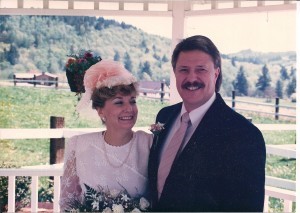
Gay and Garth – our wedding day
Eventually, many months down the road, we discovered that we really cared about each other. Over the next two years, that love grew; we were married in April 1990, both of us now 44 years old. Six months later, my life much calmer and happier, Garth said he wanted to start an organic coffee import business. My first thought was, “Oh No! Stress is back again!” But I believed in him and I knew that if anyone could do this, he could.
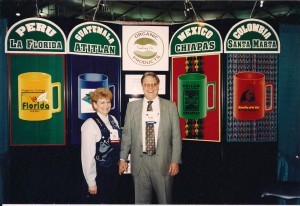
With Garth at our first trade show booth, 1996
At that time, there were only two roasting companies buying organic coffee. It was tough going for the next 5 years until he talked other companies into roasting organic coffee, while working with origin countries to develop organic coffee projects. Over the next two decades, we worked together to build our business, Organic Products Trading Company (OPTCO). He did the buying and selling while I took care of the business end of things—accounting, business systems, computer systems, banking relationships, and marketing. My background in business and banking prepared me well for this role. We eventually grew to a staff of eight.
I loved what I did and loved the challenges even more. But soon enough, everything changed once more….
What happened?
We had been working in Peru with coffee producers for 12 years and had developed very strong relationships in Northern Peru. One day in 2004, our partner there, Isabel Uriarte Latorre, called my husband and said that the women wanted to manage and sell their coffee crops separately from the men’s. They felt they put more care into their production, creating a superior product, and wanted to know if there might be a market for women’s coffee.
This was a bold move, given these women’s circumstances: They live in remote, isolated mountainous communities; they live in poverty; they have no rights or say about anything in their lives; men control the money and make all the family decisions. These women take care of the children, cook all the meals, tend to the farm animals and the family garden, and clean the house. They also work on the coffee farm. They labor from early in the morning until late at night. They are considered to have no value. Still, these women do retain some rights to land in cases of inheritance or when husbands abandon their families (affecting about 30% of them).
When Isabel asked my husband what he could do with their new women-only coffee crops, he turned to me—I remember it like yesterday—and said, “What am I supposed to do with women’s coffee?”
I knew in that instant that my life was going to change, that I had been called to a new purpose. I said, “I don’t think you are. I think this is mine to do. But at this moment in time I don’t know what that means.” Over the next few days, I prayed, rolled ideas around in my head, and finally the picture became clearer.
I launched Café Femenino Coffee in 2004, at the age of 57. If you search online, you will find many roasters around the US and Canada that roast and sell this coffee today. They are required to label the coffee as Café Femenino and to share the story behind the coffee.
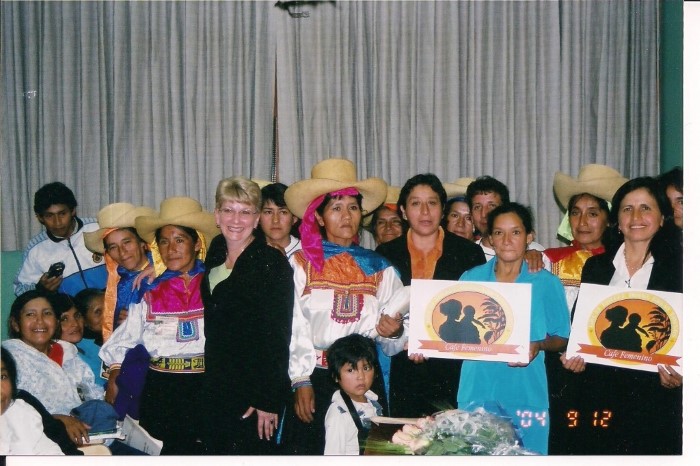
Presenting the Cafe Femenino logo in 2004
How did Café Femenino Coffee help these women?
When they started receiving money directly for their coffee, everything changed. When women have money, they have value. The cultural shift happened fairly quickly. CECANOR, the cooperative of coffee farmers to which these women belonged, was required to give them a space in their structure.
I was able to secure grant funds in order to provide leadership, organization, finance, and gender training for all the Café Femenino projects, in all the countries we worked with, for three years. This helped us to create women’s organizations under the cooperative structure. Today, many women are either leading their cooperatives or are on the board of their cooperatives.
However, the coffee could only go so far in helping these women. Giving them a small premium for their coffee was a start, but they needed more. So I also launched the Café Femenino Foundation. The mission of the foundation is to enhance the lives of women and their families in coffee communities around the world.

Preschool the foundation funded in the Dominican Republic
Through the foundation, we fund, schools, libraries, community centers, crisis centers, books, health programs, cancer screenings, income diversification, micro lending funds, emergency funds, food security, animal breeding programs, and a plethora of other grants that are truly changing the future of many communities.
Because of our foundation, girls can go to school, abuse rates have dropped, men help women in the homes, roles are changing, and women hold positions in their coffee organizations and in their communities. We have truly changed the lives of thousands of poor women.
For example, in Rwanda, where Hutus slaughtered Tutsis in the 1994 genocide, women from both Hutu and Tutsi tribes are now working together in their cooperative to mend the past and find a new way for the future because of grant funds the foundation has provided.
The Café Femenino Foundation is the only non-profit working in the coffee industry that allows these poor women to decide what they need to improve their lives, their family’s lives, and their communities.
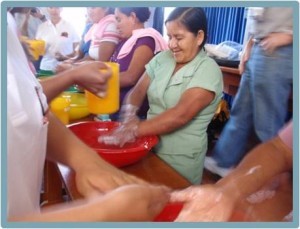
Learning proper handwashing and sanitation
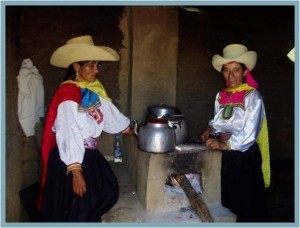
Maria and Paula with their new vented stoves funded by the Cafe Femenino Foundation
How did you find the courage to make all this happen?
I had a very profound “aha” moment and I knew it the moment that it happened. I had also been in prayer trying to understand what God’s purpose was for me. I believed at that time, and I still do, that I was being called to do more, but it wasn’t clear to me what I was to do at that moment, except that my life was going to be forever changed—so I think I was very open to hearing that call. I believe that this openness and searching to hear the message is important for all of us. I feel so blessed I heard the call, and I listened for the clarity of what and how things were supposed to happen.
I was a woman who suffered abuse and was abandoned and left with children. Thirty percent of the women I work with have been abandoned and a very high percent of these women suffer from all types of abuse (varies by country, from 40% to 75%). I was bound to these women; I believe I had to suffer the things I did in order for me to stay committed to the work that I do today. The Café Femenino Foundation is an all-volunteer organization. We do this work because we believe in the mission of the foundation. It was my past that changed my future.

Addressing the third annual meeting of the Women Producers of Cecanor, Peru
There were so many things I was called to do that I had never done before, but I felt fearless. I was asked to speak to many groups, and even appear on TV and film. In the past, I would have been petrified. I was asked to write, participate in workshops, and travel to Africa and Europe to talk with development organizations. My life totally changed, but all of it was good, even wonderful. I don’t worry about tomorrow because today is amazing. The loss of my husband and partner has been hard, but everywhere I go they honor him and that helps to keep me motivated. I know it is what he would want me to do, to continue the journey we began together.
How did your family and friends react to your new venture?
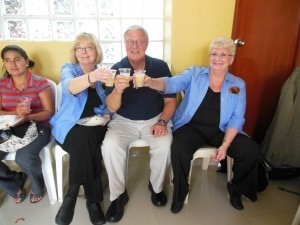
Toasting with Marilyn and Garth in Peru
One of my dearest friends, Marilyn Dryke, is actually the president of the foundation. My husband, before his death, was also involved and absolutely wanted to help the producers we worked with for so many years. My daughters and their families help me in so many other ways, which makes it possible for me to do the work I do. For example, my son-in-law came and dog sat for me so that I could go to Seattle to the national coffee show and promote the foundation and our on-line auction we were holding during the show. They are all very proud of me.
Are you still working at Café Femenino today?
In 2010, my husband, and I sold the company and continued to work for the new owners to help transition the business for the next two years. In May of 2012, we retired. I do, however, continue to work to grow the Café Feminino Foundation in the many countries we serve. It was my husband’s legacy and it is mine also. I am committed to helping these poor women in coffee communities to achieve their rights and to have opportunities to advance themselves and their children for the future.
I love what I am doing today. I know that this is the real purpose of my life and what I was put here on earth to do. For me, the greatest joy is to hear from the women and families whose lives have been transformed through our organization. I have so many new friends who have enriched my life beyond description. There is completeness in my heart, my soul rejoices, and my mind is at peace knowing I found the answer I was searching for.
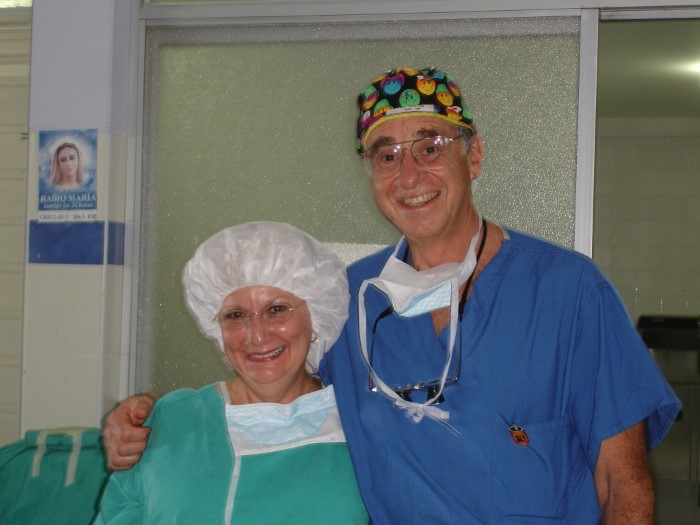
with Dr. Tom Albert, Founder of the Faces Foundation—they work with us in Peru doing cleft Pallet surgeries on children of the coffee producers
How does the Café Femenino Foundation raise funds?
The Café Femenino Foundation raises money mostly from within the coffee industry, but we also have support from individuals and organizations like local Soroptimist groups. We have a wonderful partner, Coffee Fest, which donates our space at the three coffee trade shows they hold each year. The exhibitors in the show are responsible for donating the auction items so we spend a great deal of time procuring these. We have been doing this now for a number of years and have made so many new friends who also believe in the work that we are doing.
Additionally, we are overseeing the grant requests that come in from women’s coffee projects and the grants that are being implemented. Some of this oversight also means that we have to travel to the countries to check on the progress and to make sure the foundation is accomplishing its goals and mission in the work that we are doing. I just returned from Peru two weeks ago, where we are funding a number of early education centers in many different communities.
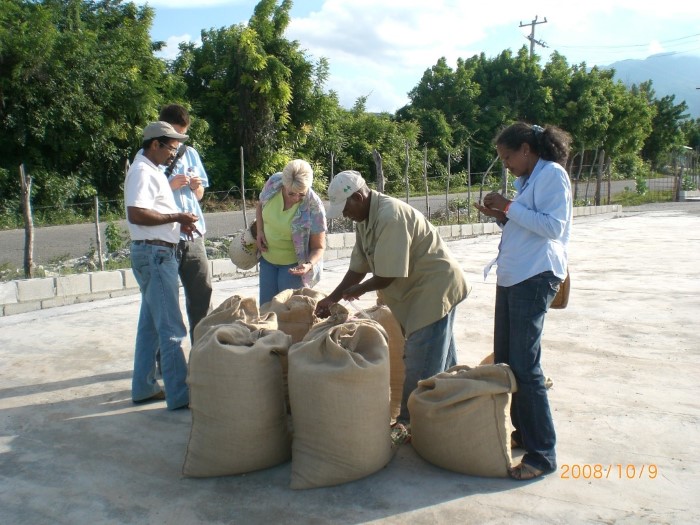
Inspecting coffee in the Dominican Republic
What challenges do you encounter?
The challenges in my work come from the conditions in the countries we serve. Many times, I stay with poor families in homes with dirt floors and food that has been cooked over open fires on floors. Eating and sleeping in those conditions is hard on an old body. Sometimes the access to communities is difficult because we are in mountainous areas; at times the roads don’t reach the communities and we have to hike in. So it is more the physical hardships that are my greatest challenge along with the occasional food borne illness. But I remind myself that I only live in these conditions for a day or two and these people live it every day of their lives. It makes me even more grateful for where I live and for all that God has blessed me with. Traveling in these countries is a very humbling experience.
There are moments when I get tired and think maybe I am too old for all this and my body really is feeling abused. I have thought about changing my current role but, for now, I am going to try to keep doing what I am until I just can’t any more. My heart is so tied to this it can’t let go.
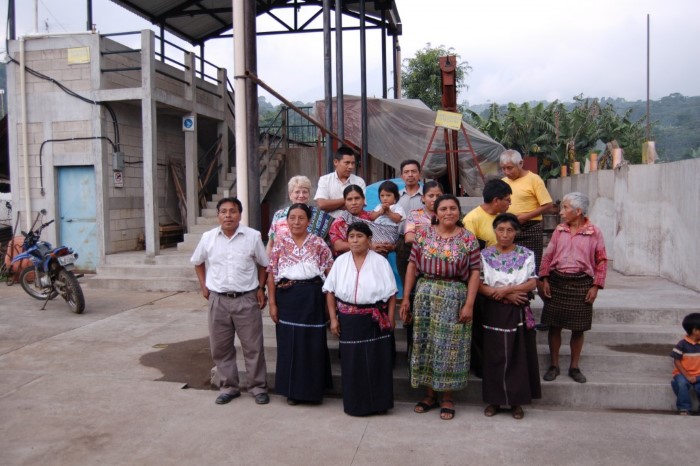
With representatives of the Nahuala Cooperative in Guatemala
What have you learned about yourself through this next act?
I learned strength, I learned healing, I learned fearlessness, I learned compassion, I learned humility, I learned grace, I learned gratitude, I learned confidence, I learned joy. The lessons are countless. I did not learn the lessons from myself, but from the multitude of women whom I have met and served. I am in awe of them every time I see them. I have been given the gift of watching them change before my eyes. I cannot even explain the gifts that they have given me. I am a different person, because of them.
What advice would you like to share with other women?
I would say that if you are not happy, if things don’t feel right, if you feel that you want something different for yourself and for your future, then you need to listen to your heart. It is telling you something. If you disregard it then all the unhappiness will continue. I would say search your heart and pray. God is trying to reach you. If you are open and seeking, then you will find the answer. I believe there is a plan, a purpose, for each of us. Discovering that purpose frees us and lets us fly and feel the joy that we were meant to have.
Everyone’s life experiences are different and everyone’s interests are different, but finding a way to use our talents to benefit others is such a rewarding path. Knowing that we are doing what we were meant to do lets us rest peacefully at night. Be patient. Sometimes God is preparing us for our purpose even when we don’t know it or understand it yet.

How can readers learn more about the coffee industry and Café Feminino Foundation?
When we started this work, trying to change the culture in coffee communities by finding a way to give women rights and reduce abuse, we had no resources to turn to. We are the first to use a commercial value chain to bring change. To explain: Coffee is a commercial product that is bought and sold. The farmers are at the bottom of the coffee value chain. The coffee moves up the chain to exporter, importer, roaster, restaurants/stores and finally to the consumer. Normally, coffee is bought and sold without any identity except as the roaster choses –for example as “Morning Blend” or such.
But we use the coffee as the vehicle to share the story of the women who produce the product. In the case of Café Femenino, the importer has to share the story and pay a premium for the coffee. Roasters also are required to label the coffee as Café Femenino and to donate either to the Café Femenino Foundation and/or to a women’s crisis organization in their own community. Consumers also can donate to the foundation. So we are using the whole value chain to bring change.
 Today, our work has been studied by other organizations and by many graduate students writing their theses. Because of our groundbreaking work, our industry has finally woken up to the problem and is beginning to look at ways to address the issues. There was even a symposium where the main topic was the rights of women in coffee communities.
Today, our work has been studied by other organizations and by many graduate students writing their theses. Because of our groundbreaking work, our industry has finally woken up to the problem and is beginning to look at ways to address the issues. There was even a symposium where the main topic was the rights of women in coffee communities.
Coffee is the second largest legally traded commodity in the world, second only to the other brown liquid, oil. It is grown in over 70 countries around the globe. Almost all are third world countries where women have no rights. It is also one of the most filmed and written about products in the world. I believe that coffee can be a vehicle that can bring about change in the world if only people can understand the problems it creates and use it as a vehicle to change the world.
Several years ago I was invited to be part of a book written in Kenya: Challenging Chains to Change: Gender Equity in Agricultural Value Chain Development. It was intended to help development organizations around the world to find ways to address gender equity in agriculture. But many of the same things can apply to non-agriculture chains also. Café Femenino was used as a model for bringing about change. Our book was funded by the Royal Tropical Institute in the Netherlands along with funding from Cordaid, Oxfam, Hivos, and ICCO, all of which help support development work.
There has also been a video independently produced in Vancouver, Canada: Strong Coffee: the Story of Café Femenino. It is a very well done movie that tells the story of Café Femenino and the work of the foundation, as well as gives some information about the coffee industry. There are also other movies about coffee such as Black Gold.
Contact Gay Smith at gaylene.smith4@gmail.com.
To learn more about Café Femenino Foundation visit their website.
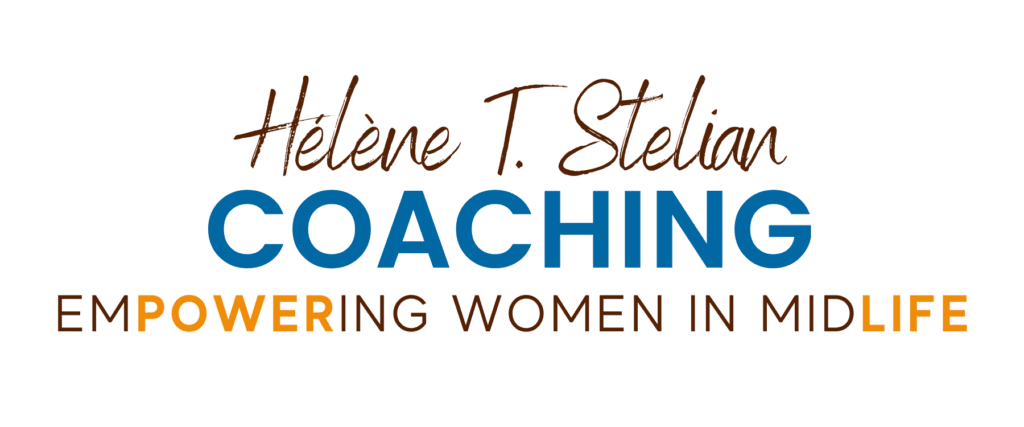
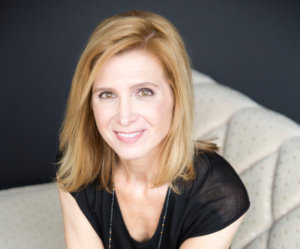
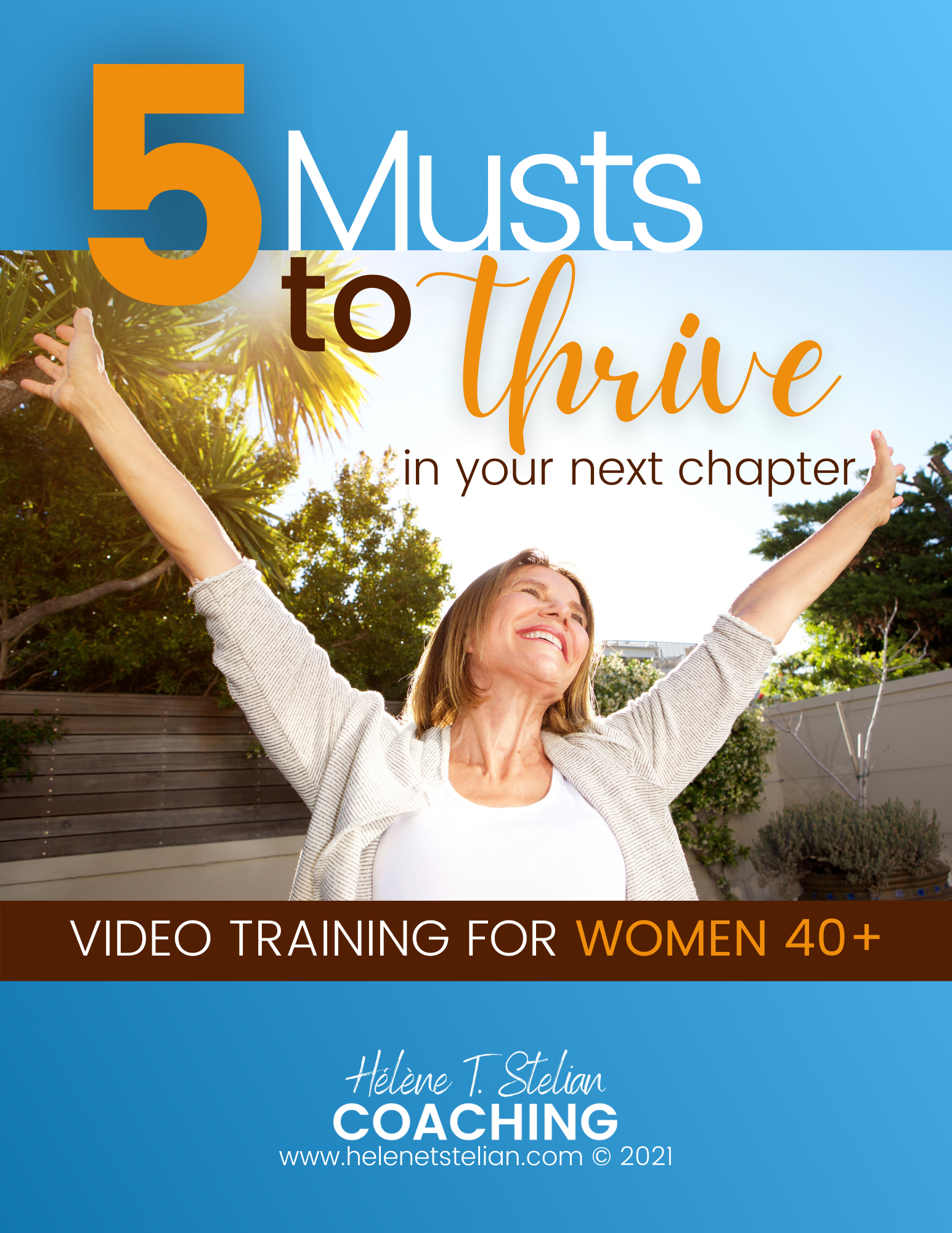



What a journey! Inspirational.
Thanks for reading Haralee. I too am just awed by how much Gay has accomplished for women in so many difficult circumstances.
evil bastardThat he clearly is, and more than one kind of crazy.But that won't stop the coming harangues about, and condemnations of, the "evil" that supposedly motivated him. I don't think anyone can be crazy enough to do that.
Bosco disse:Sem dúvida uma bela iniciativa da Dassault, só que ao meu ver um pouco leiga demais, como se dirigida ao público.Também interessante que não foi citado o Meteor.Mas eu tenho o Rafale como o meu preferido seguido de perto (bem coladinho na posição de 4 horas.rsrs…) pelo F-18.
Gay, thanks for sharing your story with the world. Blessed to call you friend.
Wow…what a great story and wonderful inspiration for us all. While she is no doubt still grieving the loss of her husband and will for some time, it does sound as though she can very much rest on her laurels at this point in life knowing she really made an impact. Thanks for sharing via Better After 50.
Thanks for checking Gay’s story out, Beth. Pretty amazing! I went over to your site to read about your torrential rains and also love that you include some “great causes” of your own!
This is truly inspiring. The impact you have made is second to none.